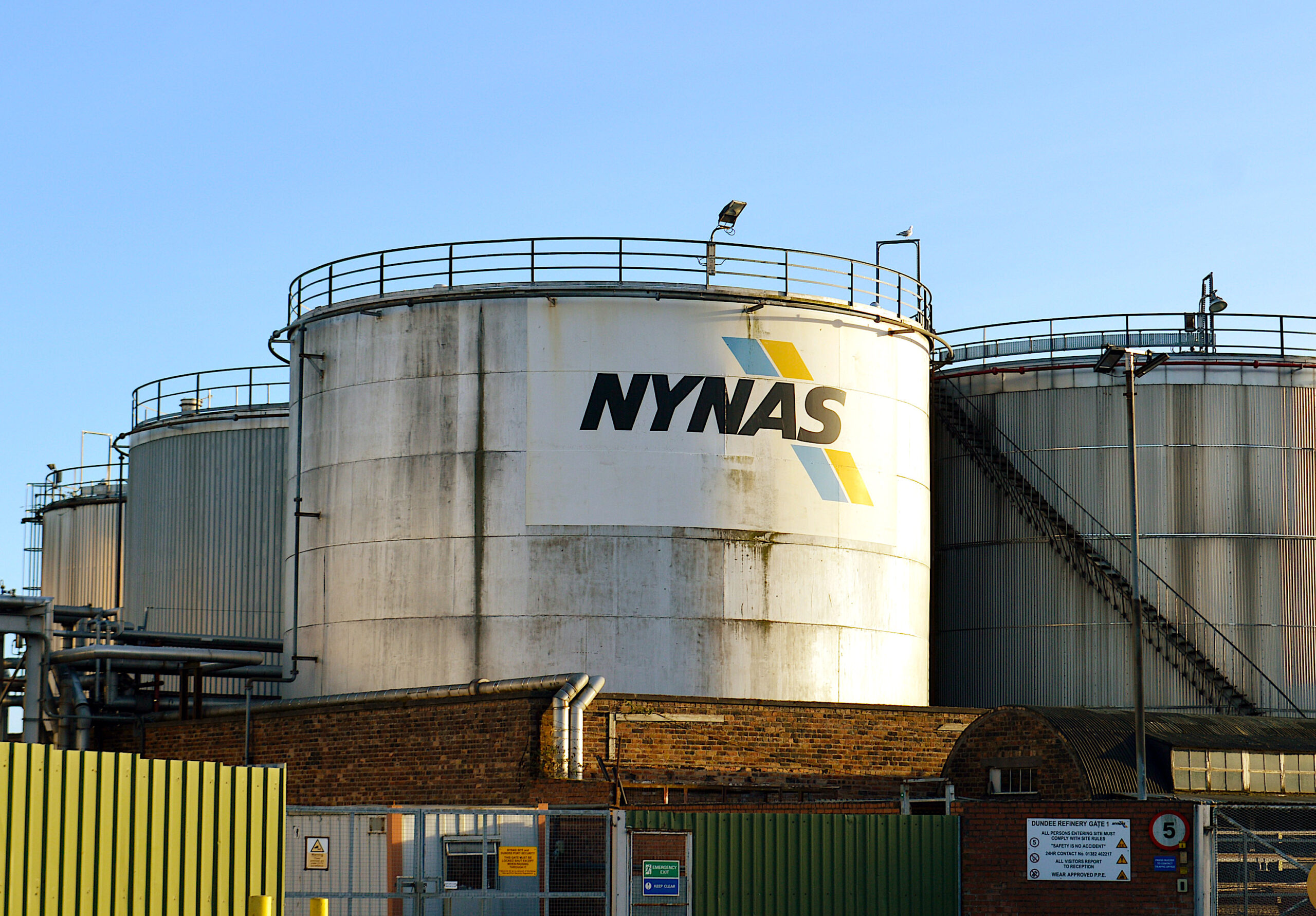Nynas AB is a Swedish manufacturer of specialty naphthenic oils and bitumen products. Founded in 1928 as a national oil company with a traditional range of products, the company today also supplies specialist products and niche markets.
As well as sales offices all over the world, Nynas also has access to a global distribution network. This includes, among other things, three central storage facilities and mixing stations (hubs), 44 local depots and 42 sales offices in 32 countries. The naphthenic specialty oils are sold all over the world, while the bitumen products are only sold in Europe.
Business activities
Until the 1970s Nynas was a traditional oil company, manufacturing and selling a large number of products, from petrol and diesel to heating oil and lubricants. Following the oil crises (1973 and 1979), activity now focuses on naphthenic specialty products and bitumen products.
Naphthenic specialty oils
consist of three different kinds of products:
- Insulating oils are used primarily to insulate and cool transformers.
- Process oils are included in products such as industrial rubber, explosives, car tyres, printing inks, nappies and other hygiene articles, and in thermoplastics for items such as tool handles.
- Base oils are suitable for liquids used in metal processing, hydraulic fluids and other industrial lubricants.
Bitumen products
are available in various versions depending on which properties are required:
- Standard binding agents to hold together the stones in asphalt surfaces.
- Special binding agents for demanding applications such as noise-dampening asphalt and roads with high traffic intensity.
- Binding agents for surface treatment, for example emulsions for roads with little traffic.
- Binding agents for cold mix asphalt technology, which has lower energy consumption and is also used to recycle old asphalt surfaces.
- Binding agents for industrial use, primarily for roof coverings and to provide anti-corrosion protection for items such as pipes.
Nynas conducts extensive work on product development. This involves not least of all catalyst and hydrotreatment technology, which has resulted in, among other things, the launch of a new kind of transformer oil. Nynas also manufactures oils that comply with the new environmental requirements that come into force in 2010, when the European Union bans aromatic oils in car tyres. In 2019, Nynas launched transformer and tyre oils that are partly manufactured from bio-based feedstock and are thus renewable. This is an important stage in reducing dependence on fossil feedstock, thereby contributing towards sustainable development.
Efforts on the bitumen side have focused on products suitable for various conditions with regard to temperature, stone material and traffic loads. One example is the special bitumen found in noise-dampening asphalt, which results in the noise from traffic being almost halved. Nynas is also the leader in the field of water-based emulsions. These can be used in cold and semi-hot asphalt masses, which means both reduced energy consumption and lower hydrocarbon emissions.
Manufacturing takes place at a number of refineries around the world. Three of these, at Harburg, Gothenburg and Nynäshamn, are wholly owned by Nynas, while the refinery at Eastham is co-owned with Shell. But there are also a number of external production facilities that are linked to the company through partnership agreements. Nynas has its own laboratories for quality control and product development, including those in Belgium, the UK and Sweden. Nynas is investing heavily in expanded manufacturing capacity. Work at the Nynäshamn refinery have boosted output, but the most significant recent investment is the purchase of the Harburg refinery in 2013, which represents a forty percent increase in the company’s supply capability of naphthenic specialty oils.
Traditionally, Nynas primarily uses heavy crude oil from Venezuela as feedstock, as it has properties that are ideal for both bitumen and naphthenic specialty oils. There have been major efforts in recent years to increase feedstock flexibility and totally replace Venezuelan crude oil. These involve crude oil not only from the North Sea, but also from countries including Brazil, Colombia, Russia and Italy.
